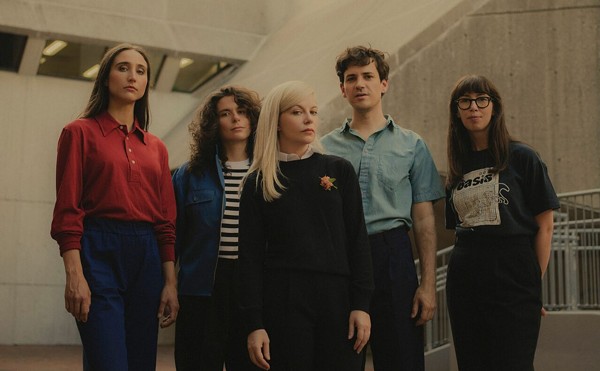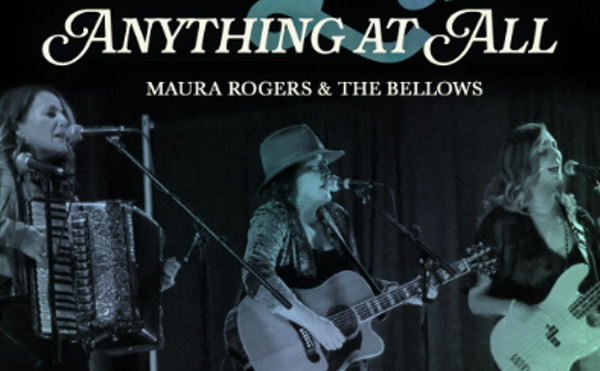"A Superword is a word like 'punk,' which is, among other things, a battleground, a weapon, a red cape, a prize, a flag in a bloody game of Capture the Flag," writes Kogan. "A Superword is a word or phrase that not only is used in fights but that is itself fought over. The fight is over who gets to wear the word proudly, who gets the word affixed to himself against his will, etc. So the use is fought over, and this -- the fight over usage -- is a big part of the word's use."
That's about the simplest Kogan ever puts it, and he devotes pages and pages to it. Virtually every genre of music becomes a Superword at some point or another; people start fighting over what exactly it is and what can and can't claim that status. My favorite Superword is a term I try to never use: hip-hop.
Fighting about hip-hop is big. Virtually every rap show I've been to has included some sort of entreaty about "real hip-hop": this is a real hip-hop audience, those radio stations aren't playing real hip-hop, fuck all that fake shit that isn't hip-hop. Depending on who you're talking to or how you're using it, hip-hop means either all rap music in general or bleak, formalist, austere street-rap. More often than not, it's a term of exclusion.
For these guys, having an opinion on hip-hop is directly contingent upon being hip-hop, and being hip-hop depends on adhering to certain aesthetic and cultural codes. A term like "hip-hop" means more than "rap music" does. Rap music means music with rapping on it. Hip-hop means burned-out Bronx tenement houses in the mid-'70s, climbing fences into train yards, and stealing electricity from street lights to fuel open-air DJ parties, where Busy Bee is battling Kool Moe Dee and KRS-One is pushing Price Be offstage.
New York is the birthplace of hip-hop, of course, and it's had something of a persecution complex ever since it stopped being rap music's biggest commercial hub. "Laffy Taffy" is just the biggest in a long, long line of scapegoats, the song that New York loves to hate, even as hordes of kids in Brooklyn and Harlem do the "lean wit' it, rock wit' it" dance on corners and in subway cars.
Last month's Ghostface show in New York City featured a lot of "bring New York back" talk, equating New York with "old-school" (hence "real hip-hop"). A lot of it came from DJ Premier, the producer whose music gets more mention than any other when people bring up the "real hip-hop" trope. "I have enough fans; I love what I do," said Preemo. He also said that he was going to test the audience's knowledge before playing a bunch of his old records: "A lot of y'all are commercialized." I'm not entirely sure what Premier meant by that; it's not like anyone's getting paid to like Dem Franchize Boyz.
But things are a little more complicated than that real/not-real binary, as Premier would probably admit if he weren't busy playing firebrand. It's easy to forget, watching him throw down his classics, but Premier is producing half of the new Christina Aguilera album. Things get tangled when you start thinking about that collaboration. Was Christina looking to do classic distilled hip-hop when she decided to work with Premier? Does Premier then become something other than classic distilled hip-hop in working with Christina?
Premier is certainly a great producer, but his whole guardian-at-the-gates shtick felt empty last week, if only because hip-hop is itself a total polyglot genre. It was originally intended as party music, after all, an outgrowth of disco rather than a refutation of it, and "Laffy Taffy" is musically a lot closer to Grandmaster Flash and the Furious Five than, say, something by Papoose is.
Maybe "hip-hop" should be redefined as just another regional subgenre of rap music, just like reggaeton, snap music, crunk, Miami bass, and everything else; that might be the only way for "real hip-hop" types to see the genre's enormous worldwide musical and cultural impact as expansion, rather than corruption. Then again, this is a genre predicated on words; maybe it's appropriate for its adherents to fight over their meaning.













